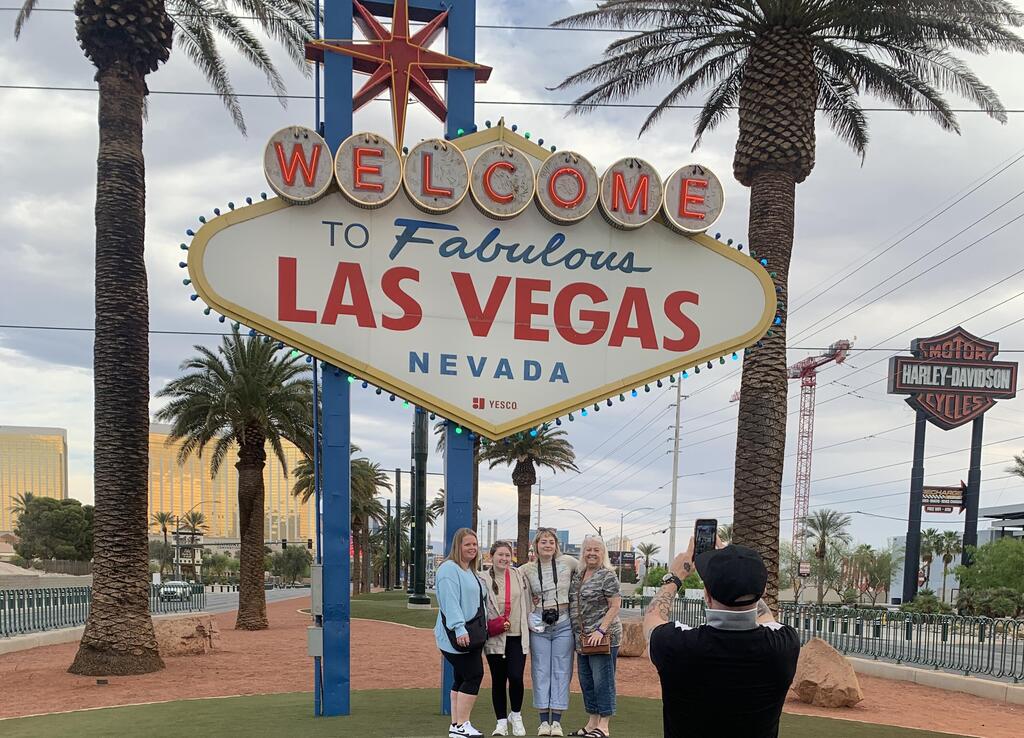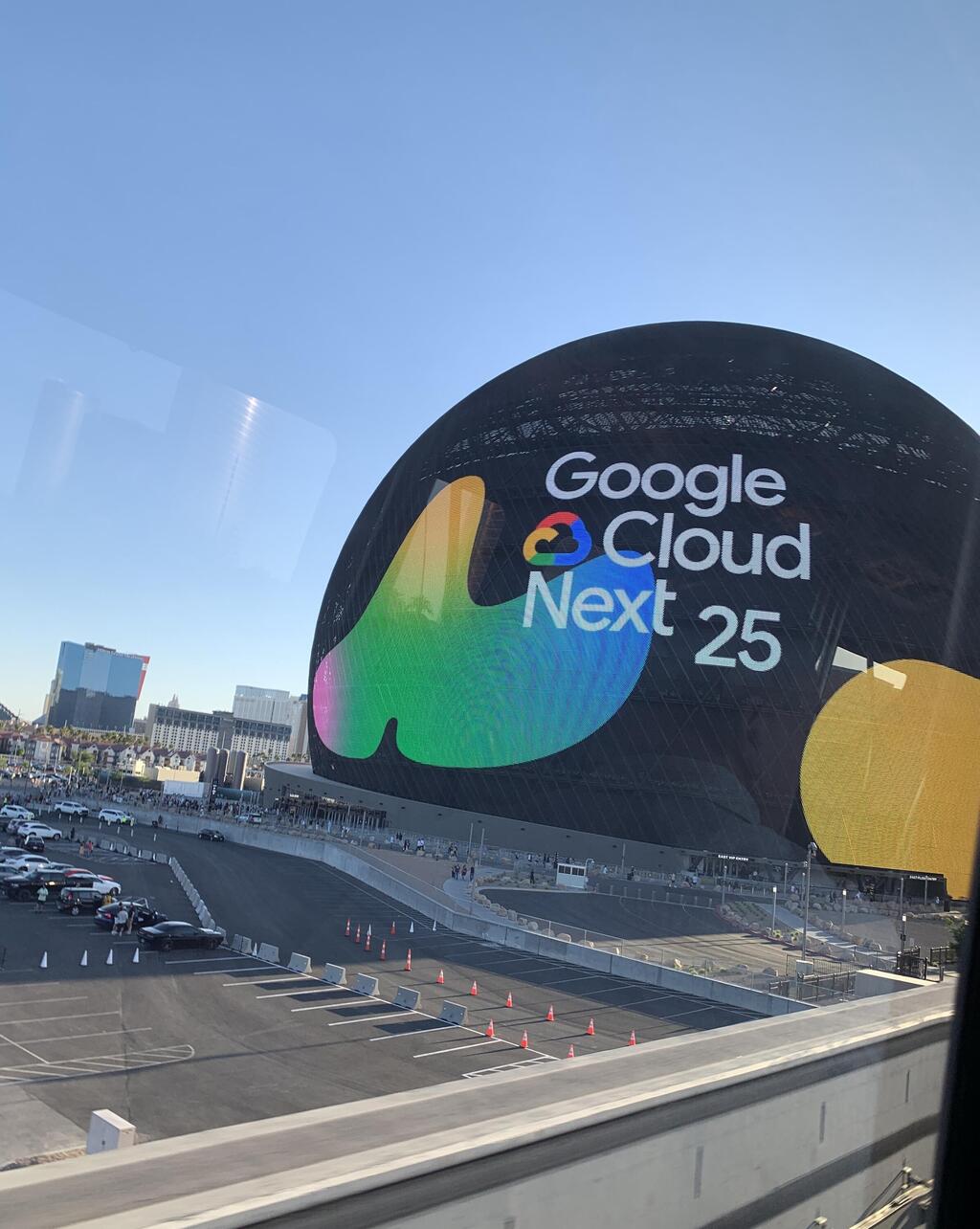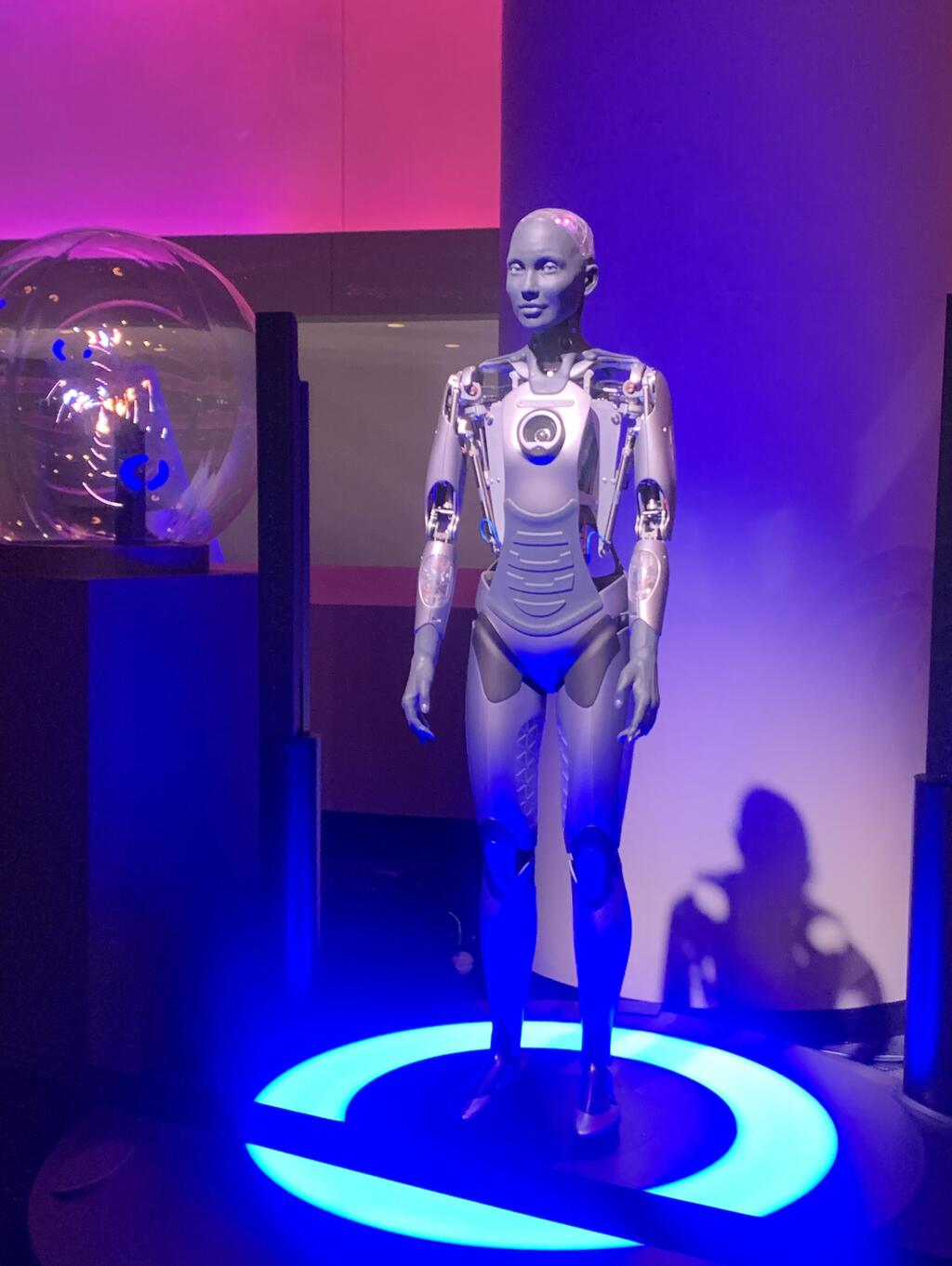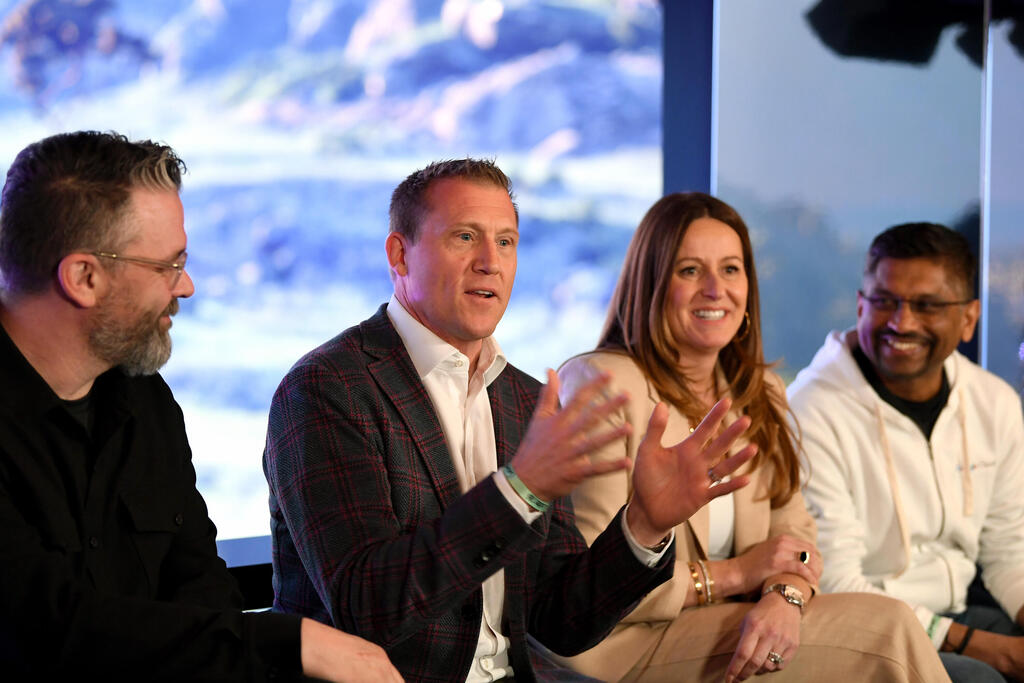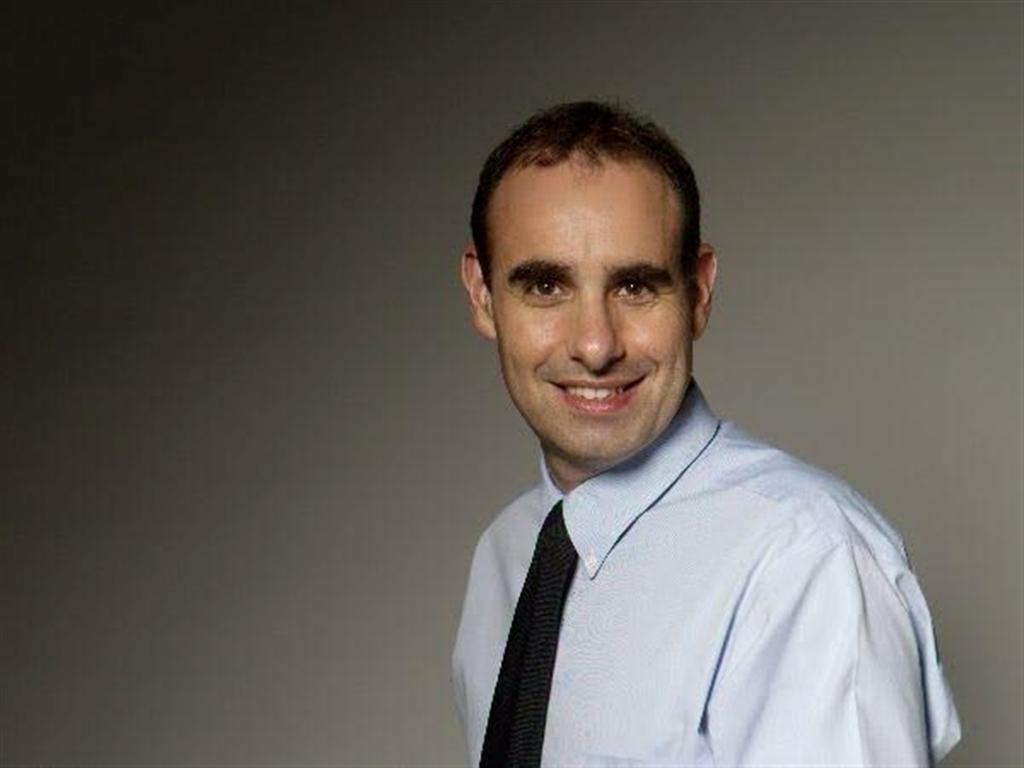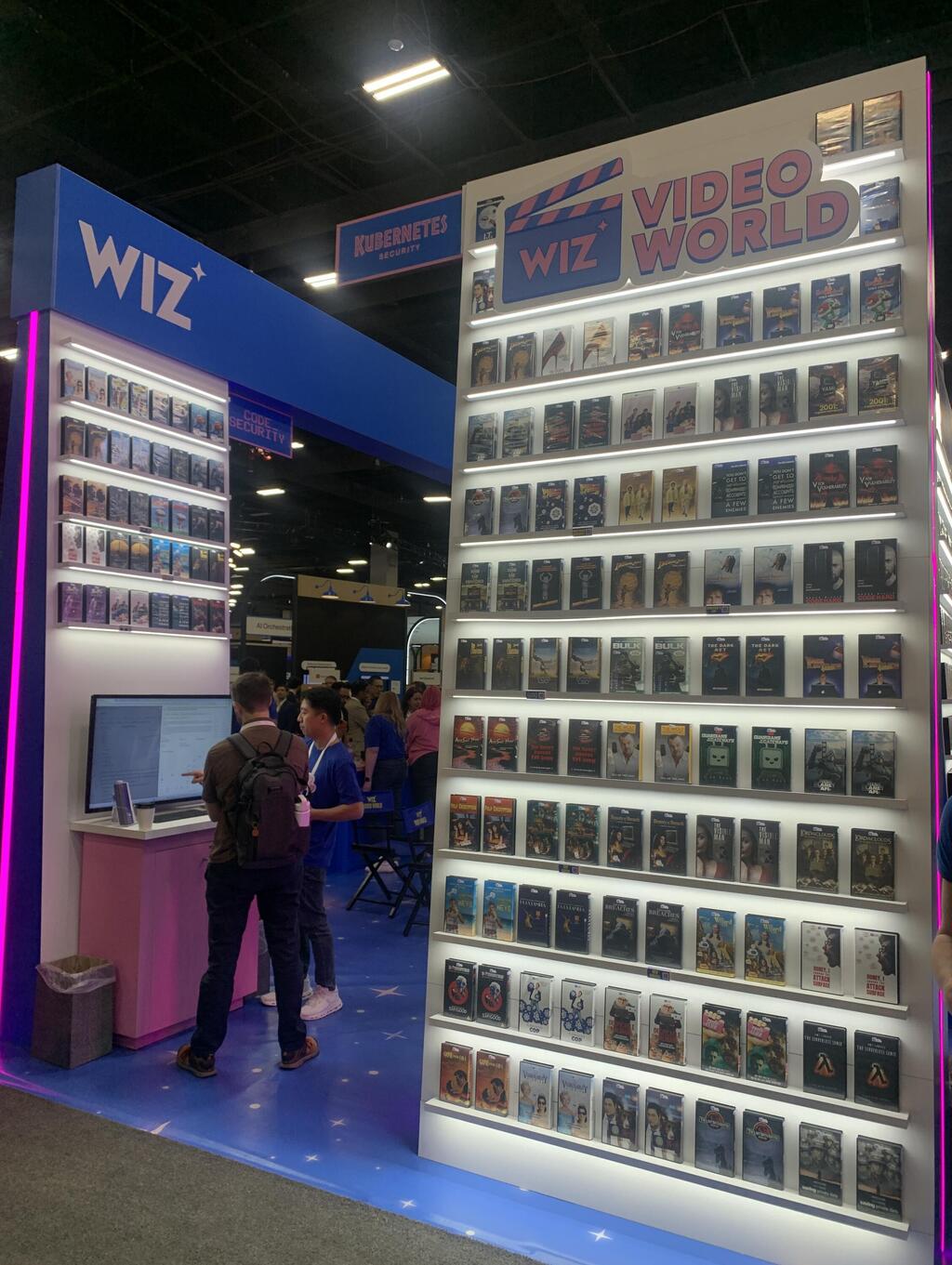The experience of attending one of the world’s leading tech conferences begins well before the opening keynote — it starts at the airport in New York. Each day, 35 direct flights depart from JFK to Las Vegas, and in the days leading up to Google Cloud Next, every one of them is packed to capacity with easily recognizable developers — most hunched over open laptops running Python code.
Alongside them, it’s just as easy to spot the suit-clad crowd there to sell services to those very developers. Known in industry lingo as "partners" or "business affiliates," they’ll do whatever it takes to get your email address — whether that means luring you to their booth with a robotic dog, the promise of custom-designed Nike sneakers or an exclusive invitation to an after-party with the stars of RuPaul's Drag Race.
At the check-in counter, a gate agent pleads over the intercom: “Anyone willing to give up their seat? We're overbooked.” In return, she offers $500 and a first-class seat on a connecting flight through Chicago. But no one budges. Missing this flight means missing the keynote — a must-see event typically headlined by company CEOs and considered unmissable in conference culture. The participants dream about it all year.
While they dream of seamless cloud integration, we, the laypeople crammed into the cabin, were simply hoping for a cloud to sleep on — after an all-nighter at the airport and a five-hour flight. Not long enough for decent rest, too long for mindless doomscrolling.
When technology turns spectacular
From the airplane window, Las Vegas welcomes visitors with one of its latest and most dazzling attractions: the Sphere. Its 360-degree LED exterior cycles through a winking yellow emoji, a spinning globe, a human eye staring back and, for reasons unclear, a blooming desert flower.
Then, in a flash of color, it transforms into a Google-branded spectacle, glowing with the tech giant’s rainbow palette and messages like “Welcome Google” and “We Love Our Partners.” The greeting becomes clear during the conference’s festive opening event — held inside the Sphere itself.
Google CEO Sundar Pichai takes the stage to announce a new collaboration with the venue: a reimagined version of The Wizard of Oz, brought to life on the massive, immersive screen that surrounds the audience. It’s one of two original productions set to premiere this September, designed specifically for the Sphere’s unique format.
Then, the magic unfolds before our eyes. A clip from the classic film plays, and suddenly the frame expands — the walls of the theater seem to disappear. You’re no longer watching Kansas; you’re standing in it. Using artificial intelligence, Google Cloud enhances and extends the footage, filling the enormous space without compromising quality. The clarity is astonishing.
It’s hard to fight the body’s reflex to flee and take cover as the wind starts blowing in Dorothy’s face. We’re definitely not in Kansas anymore, Toto. We’re in Vegas.
Behind the scenes, Sphere engineers had challenged Google: how do you take a vintage film, shot on a small camera, and stretch it across a dome that fills the field of view for 20,000 people — without inventing footage that never existed? What do you display in the expanded frame to stay faithful to the original?
As Dorothy sings, Google Cloud’s algorithm quietly gets to work. In the background, it adds fields and pigs to the farm — elements absent from the original Wizard of Oz film but referenced in the script. According to Google, this isn’t a digital fantasy, but rather an authentic reconstruction of the original creative vision. The model was trained on the screenplay and, under the guidance of an art director, filled in visual gaps that wouldn’t have fit within the limited frame of 1930s cinematography.
These kinds of collaborations are exactly the card Vegas has been trying to play in recent years. The city isn’t just aiming to attract residents fed up with California’s high cost of living and taxes, but also its tech giants.
This is the second year in a row that Google Cloud has chosen Vegas to host its annual conference — and despite the skeptics, this city knows how to treat its guests right. Beyond the Sphere lit up especially for the occasion, even the hotel room keys are branded with the Google logo, and the TVs in the rooms play an endless loop of a glitzy promo for the event. A dedicated website was created to centralize all the after-party events for the conference’s more than 32,000 attendees, and it wouldn’t be surprising if A-listers like Kygo, J Balvin and Carrie Underwood just happened to be performing in the city that same weekend.
Not the flashiest event, but possibly the most important
Despite an investment of between $50 million and $100 million — and a private stadium performance by The Killers and Wyclef Jean (“Why are you looking at me like I’m a f***ing fish out of water? I’m Google!”) — Google Cloud’s conference isn’t exactly the flashiest tech event we’re used to seeing.
There’s no big Pixel phone reveal, no Jeff Bezos in a cowboy hat, no Mark Zuckerberg demoing augmented reality goggles — and not much in the way of consumer-facing headlines to thrill the average gamer.
What the event does offer, however, is a trove of near-finished technical developments that may not trend on social media but are designed to quietly improve everyday life. One example: the expanded integration of Gemini, Google’s AI model, into the Google Workspace suite. Soon, Google Docs may be able to turn meeting notes into podcast-style summaries with the click of a button, while Sheets could surface the exact data point you’re searching for — without the need to wrestle with clunky VLOOKUP formulas.
Even if Las Vegas isn’t where the next consumer breakthrough is unveiled, it’s where developers and business partners flock to learn how to harness Google’s cloud technology. Many pay the full price—$1,999—to attend one of more than 500 conference workshops.
At first glance, they all seem to share the same name, but developers insist each session is unique, packed with live demos, practical tips and, most importantly, golden networking opportunities. Among the hottest icebreakers: mutual complaints about the hotel room humidifier or bonding over cracked lips in the desert air.
The result is a surreal scene: by day, hundreds of booths hosted by companies and “business partners” compete for attention in a carnival-like atmosphere—offering everything from Capitol-shaped cookies and card tricks to AI-assisted basketball with NBA teams and nostalgic Volkswagen rides through childhood neighborhoods. The latter, of course, doubles as a showcase for Google Cloud’s ability to explain dashboard warning lights without cracking open a car manual.
Attendees who visit at least a dozen booths and scan the QR codes earn branded Google swag and raffle entries. By night, the crowd flows past breakdance circles and makeshift DJ booths into nearby casinos. Among roulette tables, slot machines and dessert buffets, conference name tags glint under the lights—a constant accessory, since losing one means shelling out $250 for a replacement.
“It feels like we’re inside a Chrome browser. It’s incredible. The organization is insane,” said Ron Kimchi, 44, co-founder and CTO of Israeli unicorn EON. “What sets this apart from other conferences is the real focus on AI and data. They go deep. People come here with purpose, and you can actually meet the biggest clients imaginable. Everything’s accessible.”
Kimchi and a 12-person team flew in from Israel—sacrificing their Passover Seder to attend. They’re among roughly 30 Israeli companies at this year’s event, spanning every stage of growth—from unicorns to startups like AskAI, A121 Labs and Rocksteady.
Israeli market on the rise
Boaz Maoz, 55, CEO of Google Cloud Israel, was seen moving energetically across the conference floor, reflecting a surge of interest in the Israeli market. “This year, I see more companies globally, but specifically for my case, in my patch in Israel, adapting AI to implement real life use cases,” Maoz said, crediting much of the buzz to Google’s high-profile acquisition of Israeli cybersecurity unicorn Wiz.
Wiz made a colorful splash at the conference with a booth styled as a 1980s video rental store—complete with a Princess Leia impersonator offering a chance to win custom-designed Nike sneakers to attendees who participate in product demos.
Just a day earlier, Google Cloud CEO Thomas Kurian publicly addressed the $32 billion deal for the first time, telling Ynet that the acquisition “clearly signals our confidence in the Israeli market.” The deal marks Google’s largest acquisition to date, at a premium 50 times Wiz’s revenue and more than twice its estimated market value.
Moreover, Google also agreed to pay a $3.2 billion breakup fee if the deal collapses—potentially due to regulatory pushback from Donald Trump, who has previously expressed disdain for Big Tech companies like Meta and Google, largely due to what he claims is disproportionate censorship of right-leaning viewpoints on platforms like Facebook and YouTube.
Still, Kurian defended the deal: “We saw Wiz has a long-term solution, we’ve seen what they’re building, and we believe their product has a lot to offer. We’ve already been active in Israel with a major development center, and if the deal is approved, it will only deepen our presence and potential in the country.”
The strategic context is clear: Google Cloud, though heavily invested in and closely watched, still trails behind its competitors. Amazon holds around 30% of the cloud market, Microsoft 21% and Google just 12%. It’s not a position Google is used to. The acquisition of Wiz is intended to deliver a significant boost—both technologically and in terms of perception.
Google aims for the top—and Israeli tech may help get it there
Despite industry consensus that Google’s cloud technology outpaces its rivals in performance, the company has yet to secure its place at the top of the market. It boasts custom-built AI chips, advanced models, robust applications, powerful distribution capabilities—and now, thanks to its acquisition of Wiz, one of the world’s leading cybersecurity solutions. But will that be enough to push Google Cloud to the front of the pack?
Maoz believes it will. In his first interview since the Wiz acquisition, he expressed optimism that more major deals involving Israeli companies could follow. “I believe that there will be continued focus on Israel. I will see investments ramp up,” he said. "Google plays a big role with the acquisition, investment in talent, the different programs we're running in Israel to enable talent on the periphery. So I'm super optimistic."
And that optimism, he added, holds firm despite the war. “It was not an easy period, but a period of high growth and a lot of satisfaction from what we're building in the country. Israeli startups, obviously, at the beginning, suffered a little bit because there were a lot of reserves. But net, we haven't seen any impact on the cloud business—2024 was a great year."
“The last 18 months have been tough for every Israeli,” Maoz acknowledged. “But what the team and I have done is really focus on the business. It was amazing to see how the entire ecosystem in Israel—startups, VCs, global, VCs, multinationals—came together to make sure that the Israeli economy is stabilized and will continue to flourish."
Despite concerns, no protest disruptions
Just a week before Google Cloud Next, Microsoft held a high-profile event in Washington, D.C. to mark its 50th anniversary—only to be disrupted by two employees who stormed a panel and accused the company of complicity in what they called genocide in Gaza.
In contrast, Google’s event in Las Vegas, despite dozens of panels and side events—and the ongoing criticism surrounding Project Nimbus, which provides cloud services to the Israeli government and military—saw no protests or disruptions. “We’re focused on doing the work,” said Maoz. “At Google, everyone is free to express their opinion. That’s part of our unique culture. But at the end of the day, our priority is our customers and driving innovation.”
Still, internal dissent at Google over Project Nimbus has intensified since the start of the war in Gaza. In April, the company fired 28 employees who were involved in protests at Google offices across the United States.
Maoz pushed back on the criticism. “The services we provide in Israel are the same as those we offer globally. Every major tech company operates here—Google is no different. These are off-the-shelf products, available in 42 other regions worldwide, with the same conditions,” he said.
Get the Ynetnews app on your smartphone: Google Play: https://bit.ly/4eJ37pE | Apple App Store: https://bit.ly/3ZL7iNv
“The government is subject to our usage policy. A lot of the criticism stems from a lack of understanding—whether about Israel, or about what Google actually does here. At the end of the day, my mission is to bring investment to Israel and to deliver Google’s amazing technology to our customers here. That’s my personal commitment.”
As the return flight to New York once again fills with business partners and weary developers hunched over open laptops, one lingering question hovers over the entire conference: will all this display of strength be enough for Google to win the cloud race?
It’s still unclear who will lead the cloud market in the years ahead. Like the faux Sphinx near the conference grounds, it’s a riddle wrapped in neon. But for anyone in the industry, it’s worth making the pilgrimage—custom Nikes or not.



